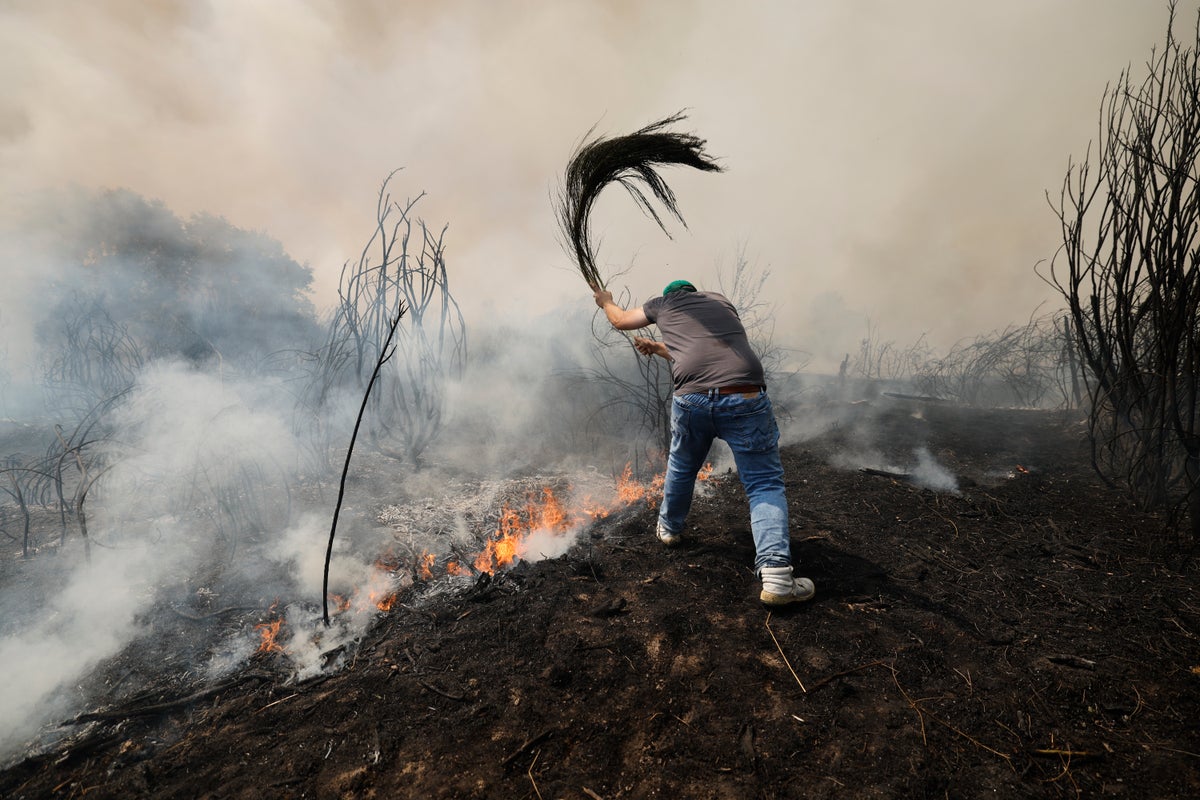World
Spain Endures Record-Breaking Summer Heat and Wildfire Crisis

Spain has recorded its hottest summer since records began in 1961, with prolonged heatwaves pushing temperatures above 45°C and leading to a severe wildfire crisis. The national meteorological service, AEMET (Agencia Estatal de Meteorología), reported that the summer of 2025 was 2.1°C hotter than the 1991-2020 average, surpassing the previous record set in 2022 by 0.1°C. The average temperature from June to August reached 24.2°C, marking the highest level in over six decades.
According to AEMET spokesperson Rubén del Campo, “These summers of 2022 and 2025 are a trailer – or spoiler – for what could happen in the middle of the century.” The agency indicated that one in every three days during the summer was categorized as a heatwave. In total, Spain experienced 33 days of officially recognized heatwaves, with one particularly intense event in August lasting 16 days and registering unprecedented temperatures in southern regions.
The extreme heat significantly contributed to Spain’s most destructive wildfire season in 30 years, mirroring a troubling trend across Europe. The European Forest Fire Information System reported that more than 1.03 million hectares of land burned across the EU during the summer. This surge in wildfires resulted in record carbon emissions; the Copernicus Atmosphere Monitoring Service (CAMS) noted that emissions from Spanish wildfires spiked sharply during the first two weeks of August, surpassing all previous years since their records began in 2003.
The consequences of this extreme weather extended beyond wildfires. Power demand surged across the country, crops suffered, and health authorities issued repeated warnings to protect vulnerable populations from dangerously high temperatures. AEMET also highlighted that this summer’s rainfall was below average, exacerbating drought conditions in already dry regions.
The forecast for the upcoming months offers little hope for relief. AEMET anticipates an unusually warm autumn, particularly in the north and east of the Iberian Peninsula and the Balearic Islands. Drier conditions are expected in parts of western Spain and the Canary Islands, further straining water resources.
Spain, recognized as one of the most climate-vulnerable countries in Europe, has already experienced a temperature increase of more than 1.5°C compared to pre-industrial levels. The United Nations has reported that the Mediterranean region is heating at a rate 20 percent faster than the global average. In response to these challenges, the Spanish government has announced plans to implement mandatory lessons on natural disasters, including floods, wildfires, earthquakes, and volcanic eruptions, beginning for children as young as three. This initiative aims to prepare future generations for the ongoing impacts of climate change.
Scientists warn that without significant reductions in global greenhouse gas emissions, Spain could face even longer and hotter summers in the future, with detrimental effects on health, agriculture, and ecosystems. As the country grapples with these unprecedented challenges, the urgency for action has never been clearer.
-

 Entertainment3 months ago
Entertainment3 months agoAnn Ming Reflects on ITV’s ‘I Fought the Law’ Drama
-

 Entertainment4 months ago
Entertainment4 months agoKate Garraway Sells £2 Million Home Amid Financial Struggles
-

 Health3 months ago
Health3 months agoKatie Price Faces New Health Concerns After Cancer Symptoms Resurface
-

 Entertainment3 months ago
Entertainment3 months agoCoronation Street’s Carl Webster Faces Trouble with New Affairs
-

 Entertainment2 months ago
Entertainment2 months agoWhere is Tinder Swindler Simon Leviev? Latest Updates Revealed
-

 Entertainment4 months ago
Entertainment4 months agoMarkiplier Addresses AI Controversy During Livestream Response
-

 Science1 month ago
Science1 month agoBrian Cox Addresses Claims of Alien Probe in 3I/ATLAS Discovery
-

 Entertainment4 months ago
Entertainment4 months agoKim Cattrall Posts Cryptic Message After HBO’s Sequel Cancellation
-

 Entertainment2 months ago
Entertainment2 months agoOlivia Attwood Opens Up About Fallout with Former Best Friend
-

 Entertainment3 months ago
Entertainment3 months agoMasterChef Faces Turmoil as Tom Kerridge Withdraws from Hosting Role
-

 Entertainment4 months ago
Entertainment4 months agoSpeculation Surrounds Home and Away as Cast Departures Mount
-

 World2 months ago
World2 months agoCole Palmer’s Mysterious Message to Kobbie Mainoo Sparks Speculation





















